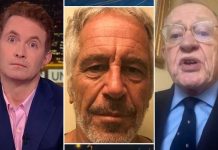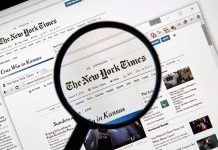
Federal air marshals surveilled Trump’s Director of National Intelligence Tulsi Gabbard on domestic flights through secret TSA watch lists, raising alarms about politically targeted surveillance of American citizens.
Key Takeaways
- Senator Rand Paul revealed federal air marshals monitored Tulsi Gabbard during her domestic flights in 2024, allegedly in response to her criticizing the Biden administration
- Gabbard was placed on the TSA’s secretive “Quiet Skies” watch list, normally reserved for potential terrorist threats, despite her high-level national security position
- The surveillance included detailed observations of Gabbard’s appearance, electronics usage, and subjecting her to additional security procedures
- DHS Secretary Kristi Noem confirmed discovering thousands of documents showing government involvement in censorship and policing of Americans’ speech
- These revelations highlight broader concerns about federal agencies being weaponized against political opposition under previous administrations
Government Surveillance of Political Opponents Exposed
Senator Rand Paul has unveiled disturbing evidence that Tulsi Gabbard, Director of National Intelligence in the Trump administration, was subjected to surveillance by federal air marshals during her domestic flights in 2024. During a Department of Homeland Security budget hearing for fiscal year 2026, Paul confronted DHS Secretary Kristi Noem with records confirming that Gabbard had been placed on the TSA’s “Quiet Skies” watch list. This program, typically used to monitor individuals suspected of potential terrorist threats, was apparently deployed against a high-ranking intelligence official after she publicly criticized the previous administration.
The surveillance reportedly began following Gabbard’s critical comments about the Biden administration in a July 2024 interview. Federal air marshals were assigned to observe and document Gabbard’s activities during flights, including details about her appearance, behavior, and use of electronic devices. She was also subjected to additional security screenings that went beyond standard TSA procedures. This targeted monitoring of a senior government official raises serious questions about the politicization of federal security agencies and potential abuses of power against political opponents.
TSA “Quiet Skies” Program Misused For Political Purposes
The “Quiet Skies” program was established with the stated purpose of identifying and preventing terrorist threats from individuals who may not appear on traditional watch lists. However, its application to Gabbard suggests a concerning expansion of surveillance powers to target American citizens based on their political positions rather than any legitimate security concerns. Senator Paul emphasized that this episode represents a dangerous politicization of intelligence capabilities that threatens fundamental constitutional protections for all Americans, regardless of political affiliation.
During the Capitol Hill hearing, Paul demanded accountability for these surveillance practices, pressing Secretary Noem on whether any personnel had been fired or disciplined for their involvement. He also commended the current administration for taking steps to end government-sponsored censorship that had utilized DHS personnel. Gabbard herself noted experiencing unusual security measures during her travels in 2024, further substantiating the claims that she was being specifically targeted for enhanced scrutiny while traveling domestically.
DHS Confirms Evidence of Government Censorship Operations
In a revealing exchange during the hearing, Secretary Noem acknowledged discovering “thousands of documents” proving government involvement in censorship and policing of speech under the previous administration. This admission provides further context for the surveillance of Gabbard, suggesting it may have been part of a broader pattern of using federal agencies to monitor and potentially suppress political opposition. The use of security agencies like TSA and intelligence resources to track American citizens based on their political views represents a significant breach of public trust.
Both Paul and Gabbard have condemned these surveillance activities as fundamentally un-American and contrary to the principles of a free society. The revelation that intelligence capabilities meant to protect Americans from external threats were instead directed at a senior official based on political speech has intensified concerns about government overreach. This case highlights the delicate balance between national security interests and the constitutional rights of citizens to express their political views without fear of government monitoring or reprisal.
Calls for Transparency and Accountability
Senator Paul has called for a full accounting of surveillance activities conducted through programs like “Quiet Skies” and other DHS operations. The lack of immediate response from the Department when Fox News Digital reached out for comment suggests reluctance to address these serious allegations publicly. As more Americans become aware of these surveillance practices, pressure is mounting for greater transparency about how federal agencies determine who gets placed on monitoring lists and what oversight exists to prevent political abuse of these programs.
This case serves as a stark reminder of the importance of maintaining strict guardrails around government surveillance powers. The targeting of Gabbard—now ironically heading our national intelligence apparatus—underscores how easily security measures can be misappropriated for political purposes when proper checks and balances are ignored. As Paul noted during the hearing, ensuring that federal agencies cannot be weaponized against political opponents must remain a priority regardless of which party controls the White House.













